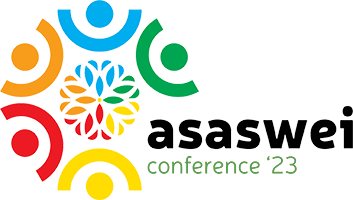The View page displays a submission's general information and data. Watch video
Submission information
Submission Number: 105
Submission ID: 139
Submission UUID: e73da8d1-f3ce-4c52-9fc9-a5bb15cc5dca
Submission URI: /2023/abstracts
Created: Thu, 07/06/2023 - 17:35
Completed: Thu, 07/06/2023 - 17:53
Changed: Mon, 07/31/2023 - 20:12
Remote IP address: 2600:4041:5368:eb00:3808:d5b2:d3e8:6c73
Submitted by: Anonymous
Language: English
Is draft: No
Current page: Complete
Webform: Abstract
Presenters
Prof.
Zelnick
Jennifer
Touro College Graduate School of Social Work
Jennifer Zelnick is a professor and social welfare policy chair at the Touro College Graduate School of Social Work in New York City. She has an MSW in community organizing from the University of Pittsburgh, and a doctorate in Work Environment Policy from the University of Massachusetts Lowell. Professor Zelnick is a public health social work professor and practitioner whose career objective has focused on the health and well-being of the health and human service workforce in the United States and South Africa.
Yes
Mr.
Reis
Karl
Columbia University Vagelos College of Physicians and Surgeons
Karl Reis is a Medical Student at Columbia University Vagelos College of Physicians and Surgeons. He is currently a research associate with the ADAP-TIV study (Adaptive Evaluation of mHealth and conventional adherence support interventions to optimize outcomes with new treatment regimens for drug-resistant tuberculosis and HIV in South Africa) placed at CAPRISA, and has extensive global health research in South Africa and Tanzania.
No
Abstract
Social Work Role in Differentiated Service Delivery for People with HIV/AIDS and Multidrug Resistant Tuberculosis
THEME 1: Promoting stakeholder partnerships that protect, support and enhance resilience during adverse events and trauma
SUB 1.1The role of psychosocial services during adverse events and resultant trauma from a Human rights perspective
Oral Presentation
For people living with HIV/AIDS, Differentiated Service Delivery (DSD) has focused on enhancing resilience, self-efficacy, and engagement. For people co-infected with HIV/AIDS and multidrug resistant tuberculosis (MDR-TB), there are severe challenges associated with treatment, including stigma, social and structural barriers. We used empirical adherence data and qualitative research based in KwaZulu-Natal, South Africa, to identify longitudinal barriers to medication adherence to inform an MDR-TB/HIV DSD-model incorporating social work interventions that address psychosocial/structural barriers to care engagement. Based on these data, DSD for people with MDR-TB/HIV should 1) intensify support for severely adherence-challenged subpopulations, while adherent patients may require less intensive support, 2) address decreased adherence over time and 3) account for psychosocial, behavioral, and structural challenges linked to discrete treatment stages. Social work role in DSD to address the psychosocial dimensions of health can improve outcomes for individuals with MDR-TB/HIV and the health and well-being of their families and communities.
Reviewer ONE Feedback
Dr
Mbongeni
Sithole
Yes
Empirical Research
Accepted
Reviewer TWO Feedback
Prof
Reineth
Prinsloo
Yes
Empirical Research
Accepted

